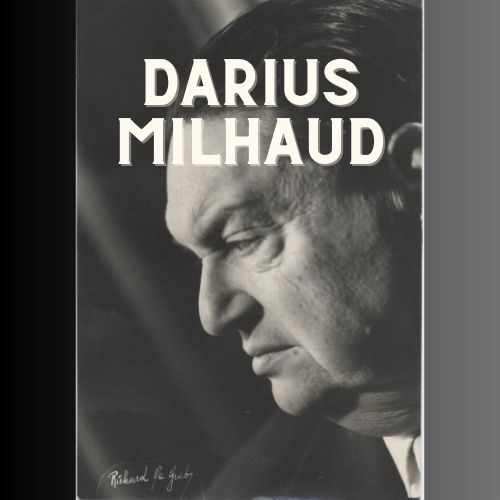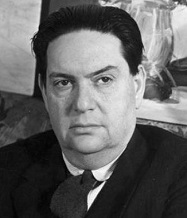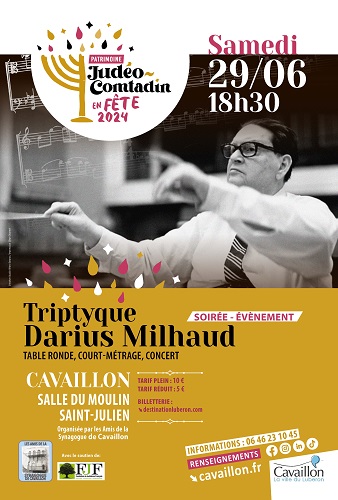
Ophélie Gaillard, cello, the philharmonic orchestra of Monte-Carlo under the direction of James Judd and the Sirba Octet
Two composers are in particular highlighted : Ernest Bloch and Erich Wolfgang Korngold.
Ernest Bloch is born in Geneva on the 24th of July 1880 and deceased on the 15th of July 1959 in Portland (USA). He is often considered as one of the masters of Jewish music, even if he never used in his works any theme or melody from the Jewish musical tradition.
Despite a hard life, Bloch was an extremely creative composer. His « Jewish work » spreads on several periods : from 1912 to 1916, he wroted in particular Three Jewish poems (1913), Three Psalms (1912-1914), one symphony Israël (1912-1916), Schelomo, Hebraic rhapsody for cello and orchestra (1916). Between 1923 and 1933, he wrote the Baal Shem (1923), Three pictures of Chassidic life (1923), Hebraic Meditation for cello and piano (1924), From Jewish life for cello and piano (1924), Sacred Service for baryton, mixed choral and orchestra (1933). Finally in the 1950’s, he published Six Preludes for the Synagogue (1946-1950), one Hebraic Suite for alto or violin and piano (1951), one Meditation and Processionnal for alto and piano (1951) and Five Hebraic Pieces (1951).
Erich Wolfgang Korngold is born in Brno (Austria-Hungary) on the 29th may 1897 and deceased in Hollywood on the 29th of November 1957. He was naturalized American in 1943.
Child prodigy, sometimes compared to Mozart, he is one of the latest representatives of Viennese romantism. In 1925, he is the most performed composer after Richard Strauss in German speaking countries. In 1936, he settles with his family in the USA, where he composes mainly music for movies for the firm Warner Bros. In twelve years, he wrote 18 music for films, two of them Anthony Adverse et Robin des Bois) having been rewarded by Oscars.
In 1947, at the age of 50, Korngold decides to give up the cinema and prepares his return to Vienna. But following a heart attack, it is only in 1949 that he crosses the Atlantic ocean with his sheet music and new ideas, such as the Symphony in F sharp, composed in Austria.
His attempts stay nevertheless failures : his years in exile, the changing of the society, the tastes of the audience, totally deleted him from the Viennese or German musical world. The establishment considers him as a film music composer, nothing more. In 1955, he comes back to Hollywood, where he disappears two years later stroke by a brain attack, aged only of 60.
In this CD, one can also hear the famous Overture on Jewish themes (op. 34) by Sergueï Prokofiev (1891-1953). Even if he was not Jewish, Prokofiev, who left Russia during the Sovietic revolution, was asked by old jewish friends from Saint-Petersburg to compose an art work inspired by popular Jewish music. This work, written in 1919, was orchestrated by himself in 1934.
In a totally different direction, Ophélie Gaillard and the Sirba Octet perform a series of Freilech, joyous dance from Eastern Europe, with binary rhythm, as well as a Yiddish lullaby by Chava Alberstein.
The spirit of celebration, tenderness, religious contemplation, are as many facets of the daily life and culture of several generations of Jewish migrants that are told by the humanistic bow of Ophélie Gaillard.
A beautiful disc !
Learn more and purchase the CD
Listen to the radio broadcast dedicated to the CD Exiles



